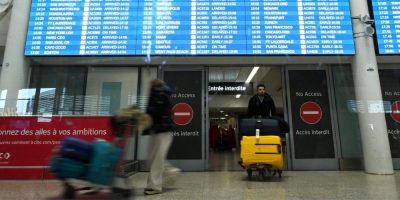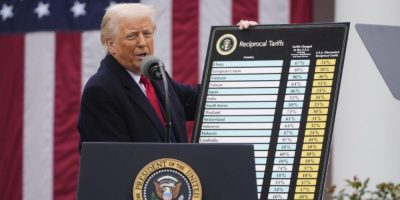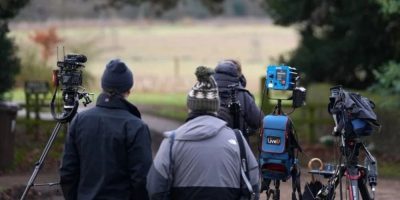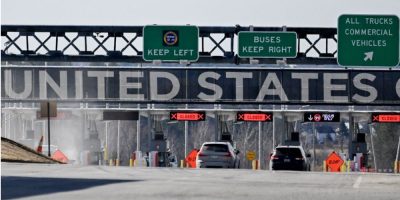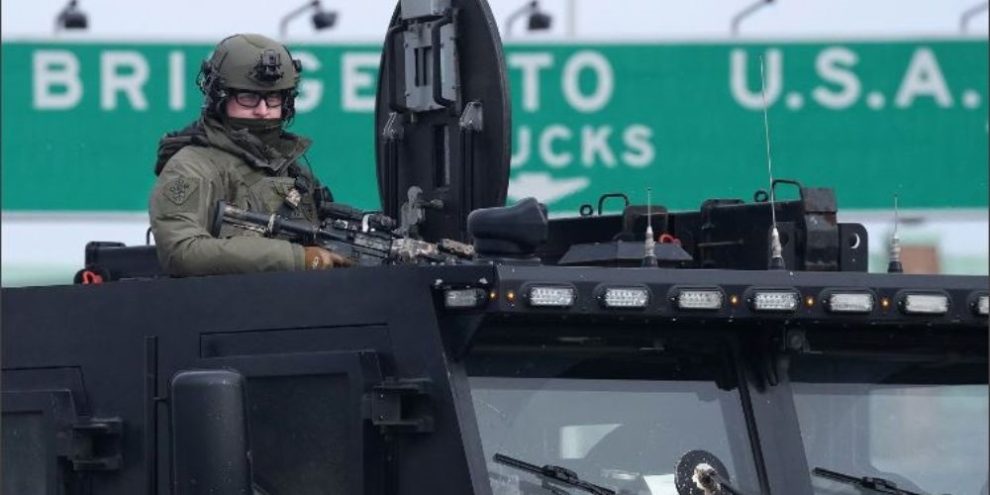
By Laura Osman and David Fraser in Ottawa
Prime Minister Justin Trudeau told Ontario Premier Doug Ford last winter that police shouldn't need more legal tools to clear protesters from the Ambassador Bridge in Windsor, according to evidence released through a public inquiry Tuesday.
A readout of their conversation on Feb. 9 was submitted to the Public Order Emergency Commission, which is investigating the government's decision to bring in emergency powers in an effort to clear protest blockades in downtown Ottawa and several border crossings.
That was five days before Trudeau invoked the Emergencies Act.
!-- Begin Constant Contact Inline Form Code -->It said Ford told Trudeau reopening the Ambassador Bridge was the priority, and that Ontario's attorney general was looking at legal ways to give the police more tools to deal with it.
"You shouldn’t need more tools — legal tools — they are barricading the (Ontario) economy and doing millions of damage a day and harming people’s lives," Trudeau said in response, according to the document,explaining the protesters were not legal.
"We’ve got to respond quickly to this."
Asked about the exchange on Tuesday, Trudeau said it's important that Canadians see what governments and people were facing during the "convoy occupations."
"Obviously, we looked at the Emergencies Act as a measure of last resort," Trudeau said at a news conference in New Brunswick.
"We needed to make sure that we were trying to get things done without having to bring in extraordinary powers."
Demonstrators blockaded the Ambassador Bridge, a key border crossing into Detroit, on Feb. 7 as part of a series of protests against COVID-19 restrictions and the Liberal government that were taking place across Canada. They immediately set up camp and refused to leave.
The protest halted $600 million in trade per day and stopped essential workers from crossing the bridge, the commission has heard through other evidence.
The Liberal government decided to bring in emergency powers on Feb. 14, the same day the Ambassador Bridge reopened to traffic.
The document shows that Trudeau pressed Ford on whether the Ontario Provincial Police, who Ford told him were going in, understood the urgency.
Ford said he shared the prime minister's frustration and lamented that he could not direct the police.
At least in Windsor, he said, police had a plan. It was different in Ottawa, where by that point protesters had occupied the downtown streets near Parliament Hill for more than a week.
"They'll act, but without directing them it's hard to describe their game plan," Ford said of the Ontario Provincial Police.
"This is critical, I hear you. I'll be up their a-- with a wire brush."
The document was shown to Ontario Provincial Police Supt. Dana Earley, who testified before the commission Tuesday. She said she never experienced any political interference when she acted as critical incident commander during the bridge blockade.
The Public Order Emergency Commission, which is required under the Emergencies Act, has scheduled public hearings in Ottawa through to Nov. 25.
At the heart of the matter is whether the emergency declaration and the powers under the act were necessary to clear the protests that clogged Ottawa's downtown for weeks and inspired blockades elsewhere in the country, driven by opposition to COVID-19 measures.
Earley said she was told by senior OPP officers that the Windsor blockade was a priority and that she would be given the officers she needed to clear it.
At one point, she said she briefly considered putting off an operation to clear the bridge, fearing it might make the ongoing occupation in downtown Ottawa worse.
Protesters in Ottawa had already been entrenched around Parliament Hill for weeks, with no end in sight, when police were ready to move on the protest blocking Canada's busiest border crossing in Windsor.
Earley said that on Feb. 11, she had a plan and her officers were ready to go, but she worried a large police operation could make matters worse in Ottawa.
Her strategic commanders convinced her to focus on what was best for Windsor.
"I changed my mind and decided to continue with my plan, realizing that I didn't know the intimate knowledge of what was going on in Ottawa, because my focus had to be Windsor," she said.
This report by The Canadian Press was first published Nov. 8, 2022.
Banner image: THE CANADIAN PRESS/Nathan Denette



